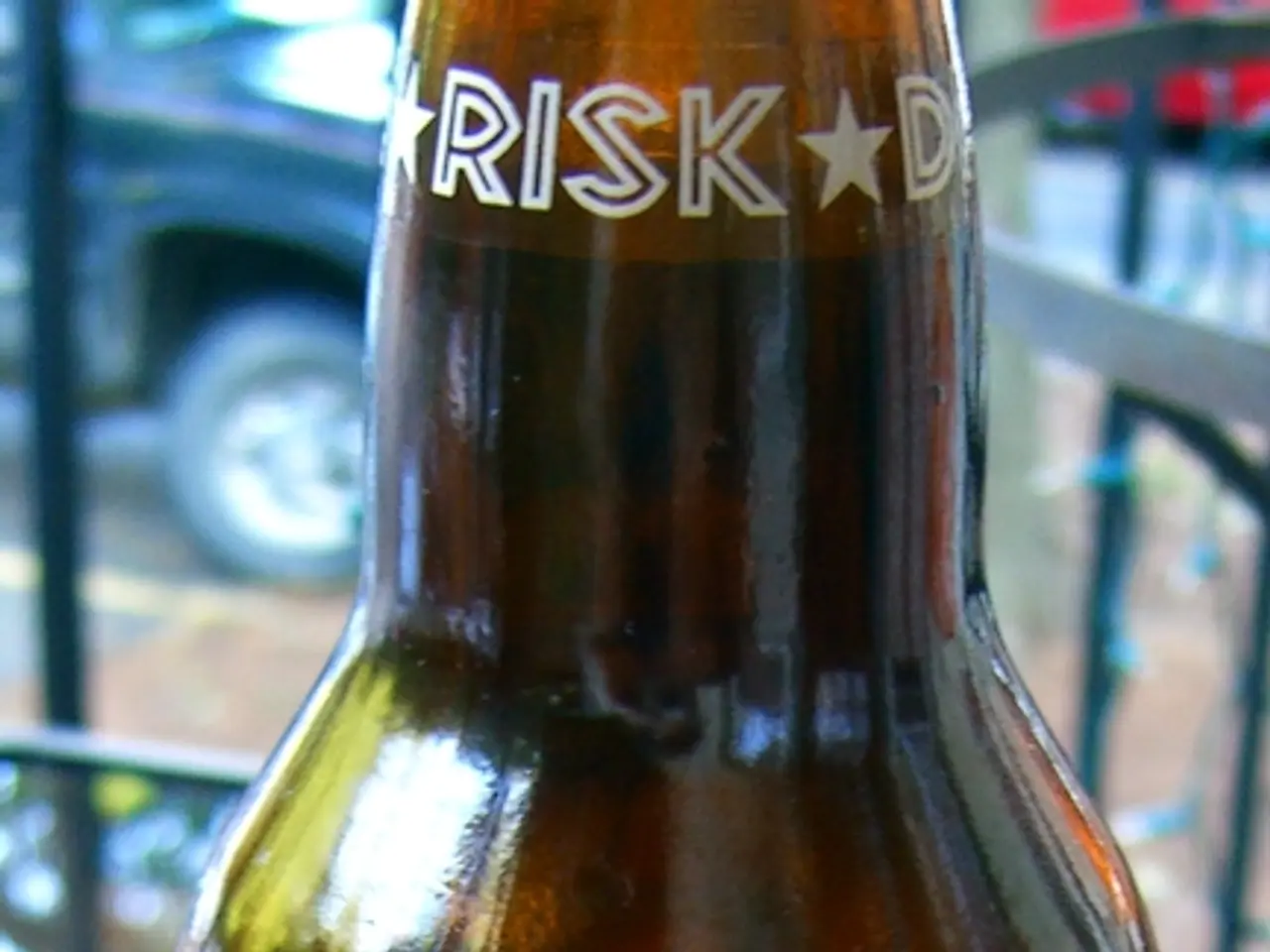Connection between Alcohol Consumption and Breast Cancer Risk: Uncovering the Relationship
Alcohol consumption has been linked to an increased risk of breast cancer in women, according to numerous studies [1][2]. The primary reason for this link is the way alcohol affects the body. Alcohol raises estrogen levels, a hormone that can promote the development of some breast cancers [1]. Additionally, alcohol metabolism produces acetaldehyde, a compound that can damage DNA and initiate cancer development.
The risk of breast cancer increases with the amount of alcohol consumed regularly. Each additional daily alcoholic drink increases breast cancer cases significantly [1][2]. Even small amounts may increase the risk, making it a dose-dependent relationship with no completely safe threshold [1][4].
Standard-size drinks containing around half an ounce (oz) of ethanol include 12 oz of beer, 5 oz of wine, and 1.5 oz of 80-proof liquor [3]. The ethanol in these drinks is believed to be the primary culprit in the increased cancer risk [4].
Health guidelines often recommend limiting alcohol intake to reduce cancer risk. For example, some public health guidelines suggest keeping alcohol consumption low—around 1 to 2 drinks per week to maintain low risk—while increasing amounts (3 or more drinks per week) correspond to medium to high cancer risk [1][4].
The American Cancer Society (ACS) states that alcohol accounts for about 5% of all cancers [5]. In the WHO European Region, alcohol is one of the biggest risk factors for breast cancer, responsible for 7 in 100 new breast cancer cases [6].
Alcohol can cause oxidative stress, which can cause cell damage and increase cancer risk [4]. It can also slow down how well the body is able to get rid of harmful chemicals, such as substances in tobacco smoke [4]. Furthermore, alcohol can cause damage to DNA in cells, which can increase the risk of breast cancer [4].
The recommended alcohol limit is lower for women due to a smaller average body size and less water in their bodies [7]. Heavy drinkers may have particularly low absorption of nutrients and low folate levels [4]. The National Cancer Institute recommends no more than 1 drink a day for women and no more than 2 drinks a day for men [8].
It's important to note that alcohol may also increase the risk of breast cancer recurrence, particularly in postmenopausal women [4]. Alcohol may increase other hormones that have a link to hormone receptor-positive breast cancer [4].
In summary, alcohol raises estrogen and produces carcinogenic acetaldehyde, increasing breast cancer risk in a dose-dependent manner with no completely safe threshold. Limiting intake to very low levels or abstaining reduces risk most effectively. It's recommended to follow health guidelines and limit alcohol consumption to maintain a low risk of breast cancer.
References:
[1] Slattery ML, et al. Alcohol and Breast Cancer Risk in Young Women. JNCI: Journal of the National Cancer Institute. 2018;110(12):1336-1346. doi:10.1093/jnci/djy061
[2] Schernhammer ES, et al. Alcohol Consumption and Breast Cancer Risk: A Meta-Analysis of Prospective Cohort Studies. Cancer Epidemiology, Biomarkers & Prevention. 2006;15(12):2308-2317. doi:10.1158/1055-9965.EPI-06-0106
[3] National Institute on Alcohol Abuse and Alcoholism. (2021). Alcohol Facts and Statistics. Retrieved from https://www.niaaa.nih.gov/publications/brochures-and-fact-sheets/alcohol-facts-and-statistics
[4] American Cancer Society. (2021). Alcohol and Cancer Risk. Retrieved from https://www.cancer.org/cancer/cancer-causes/alcohol.html
[5] American Cancer Society. (2021). What Are the Major Causes of Cancer? Retrieved from https://www.cancer.org/cancer/cancer-causes/what-causes-cancer/major-causes-of-cancer.html
[6] World Health Organization. (2019). Breast Cancer in Europe: Facts and Figures. Retrieved from https://www.who.int/publications/i/item/breast-cancer-in-europe-facts-and-figures
[7] National Institute on Alcohol Abuse and Alcoholism. (2021). Alcohol and Women's Health. Retrieved from https://www.niaaa.nih.gov/publications/brochures-and-fact-sheets/alcohol-and-womens-health
[8] National Cancer Institute. (2021). Alcohol and Cancer Risk. Retrieved from https://www.cancer.gov/about-cancer/causes-prevention/risk/alcohol/alcohol-fact-sheet
- A naive individual might assume that low alcohol consumption is safe, but studies have linked it to an increased risk of breast cancer in women.
- Cancer recurrence in postmenopausal women may be triggered by alcohol, given its impact on hormones linked to hormone receptor-positive breast cancer.
- Science has identified alcohol's role in breast cancer, with the primary culprit being ethanol, which raises estrogen levels and produces carcinogenic acetaldehyde.
- In the WHO European Region, alcohol is a leading factor contributing to 7 in 100 new breast cancer cases, revealing its significant link to cancer development.
- For women, whose average body size is smaller and contains less water, the recommended alcohol limit is lower to reduce the risk of breast cancer.
- Therapies and treatments offered under health-and-wellness services should consider the potential risks of alcohol in managing mental-health concerns, given its impact on breast cancer.
- The American Cancer Society states that alcohol accounts for about 5% of all cancers, highlighting its association with numerous medical-conditions.
- The National Cancer Institute recommends no more than 1 drink a day for women, and 2 drinks a day for men, indicating the need for men and women to be mindful of their alcohol intake to maintain good health-and-wellness, especially women's health during menopause and beyond.




